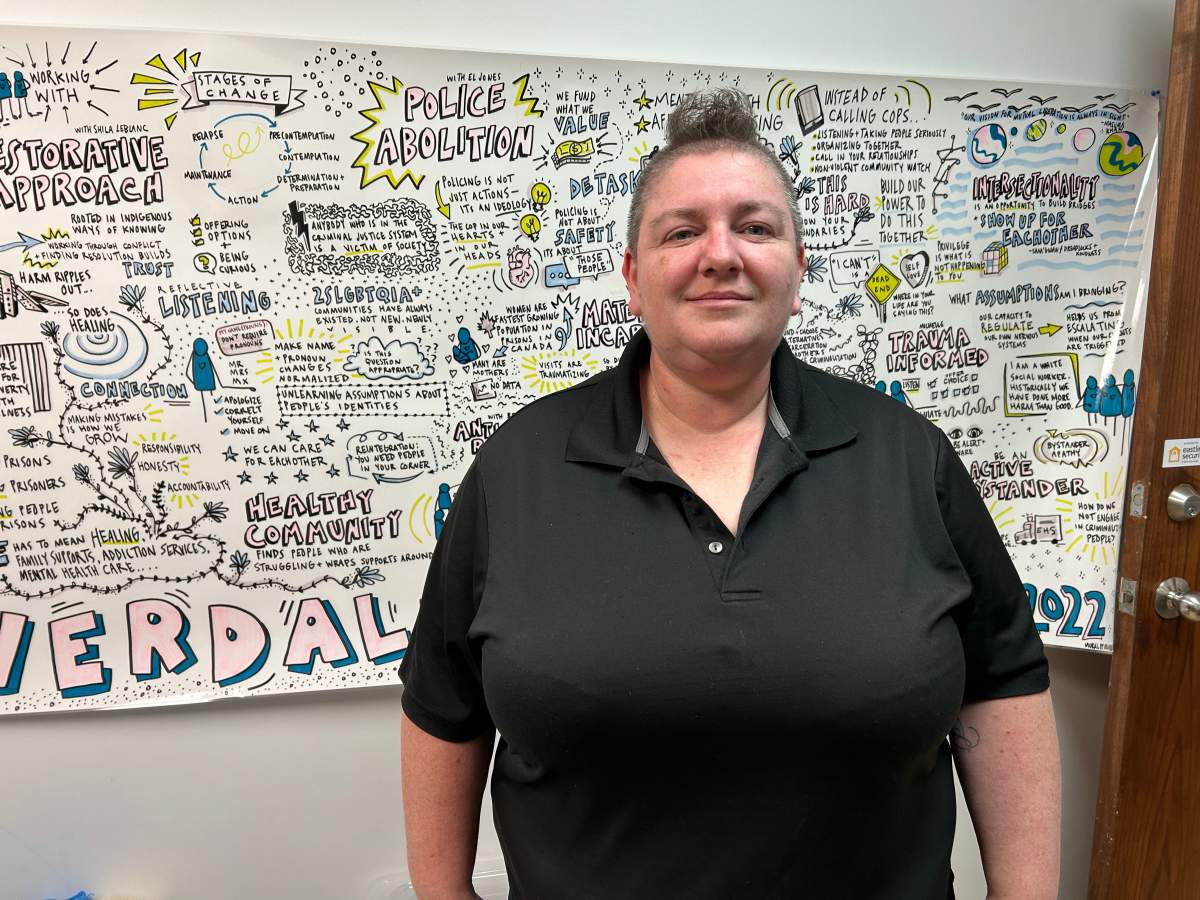A group of professors and former students at a Nova Scotia university are working together to deliver post-secondary education to imprisoned individuals throughout the province.

The “prison access to education” program, spearheaded by assistant professor El Jones, at Mount Saint Vincent University (MSVU) is one of a kind — as it makes the Halifax institution the only degree-granting university for incarcerated people in Canada.
Jones, who’s also known for her activism and spoken-word poetry, said the program, which started in 2018, connects inmates to professors and covers everything required to attend university, such as program costs associated with fees and textbooks.
“We believe that access to education is a right and is so incredibly important in people’s reintegration in their time in prison,” she said during an interview in her MSVU office on Thursday.
“We’ve had people say things like, ‘This is the first thing I’ve done that my family is proud of.'”
Despite having about 12 to 15 students from several correctional facilities in Nova Scotia already enrolled, some flexibility has been necessary to ensure the courseloads are accessible to those who are actively serving time during their study period.
“People may not realize, but if you’re in prison in Canada you’re not allowed access to the internet at all,” Jones said, adding that once an inmate identifies an area of study that they’d like to pursue, accommodations are then made with the program instructor to co-ordinate how the course material will be accessed.
“A lot of textbooks are online now, so we’ve had to find earlier editions of textbooks. Sometimes we have to print out PowerPoints and send them in, or sit on the phone and hold up the phone to a lecture and the person listens in.”

Get daily National news
She said the co-operation between a wide range of professionals, including social workers, professors, parole officers and jail staff, has been integral to the program’s success.
“It is a team effort because we’re asking professors who are in the middle of teaching their own course to teach a whole other course for somebody who’s in prison,” Jones said.
Grisha Cowal, a former student of Jones’ at MSVU, said she became interested in the cause after hearing about Jones’ efforts to deliver university-level education to people behind bars.
“It’s very rewarding speaking with the people working side by side with the people inside. The prisoners do phenomenal work, but the challenges are getting things in,” she said.
“Whether it’s mailing things in, and it doesn’t make it in … whether it’s facilitating things over the phone and the person only has 20 minutes left on their card, whether it’s having to write down word for word by hand for five pages, there’s just so many barriers and they’re all very different.”
Despite the unique challenges that come with providing remote learning without internet access, Cowal said the success stories are what make it all worth it.
“Last week, for example, I had somebody almost in tears because I told them the feedback that the professor gave them … (was that) their work was the strongest in the course and that they put the most effort in,” she said.
“Hearing him over the phone, he just couldn’t believe it because nobody’s ever told him that.”
Sara Tessier’s story is an example of what the program intends to achieve, as she completed a creative writing course with Jones during her time incarcerated, while studying for a Law School Admission Test (LSAT) and working as a paralegal advocate for the Elizabeth Fry Society. She said once she was released, she was inspired to give back.
“Everybody does have a right to an education,” she said, adding that she now works as an impact director for the Northpine Foundation, an organization that actively funds Jones’ prison education program at MSVU.
“To see the people that are getting this education while incarcerated and coming out and continuing their studies, and just to see how proud they are of themselves and believing in themselves … it gives them that extra push to really fight harder.”
Tessier and Jones both said they hope the initiative expands and receives more funding to allow it to become a more common service across the country.










Comments